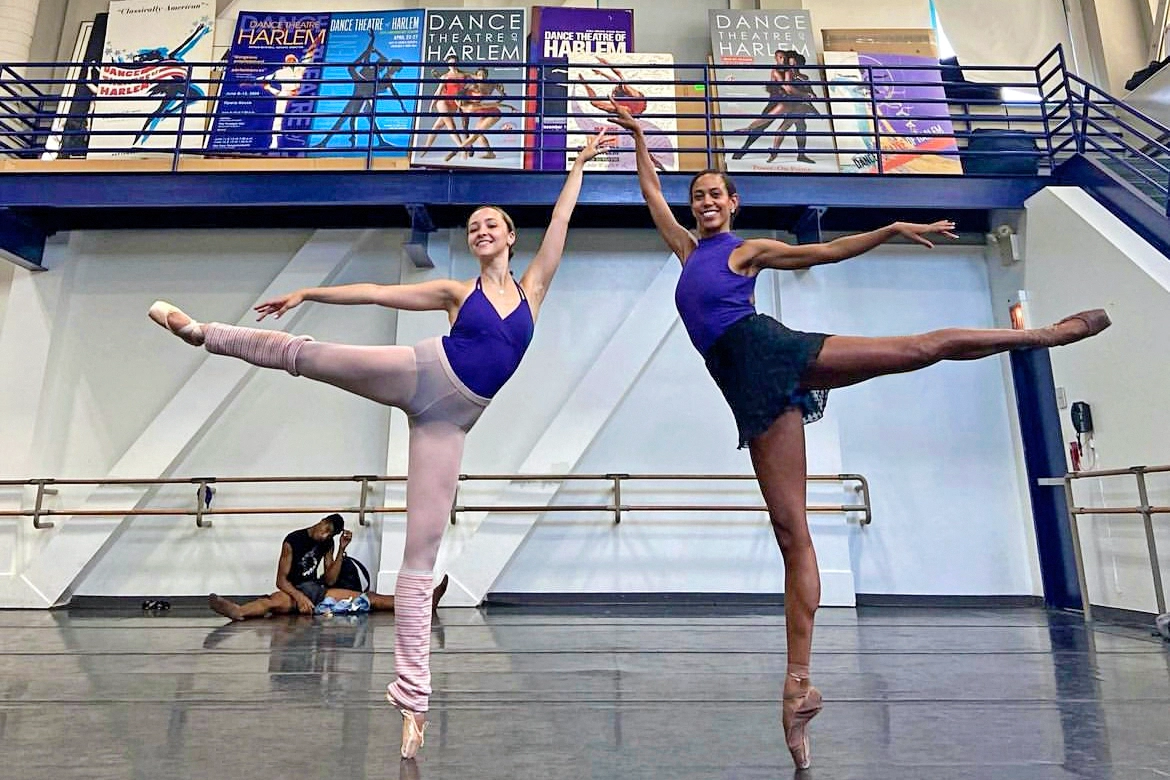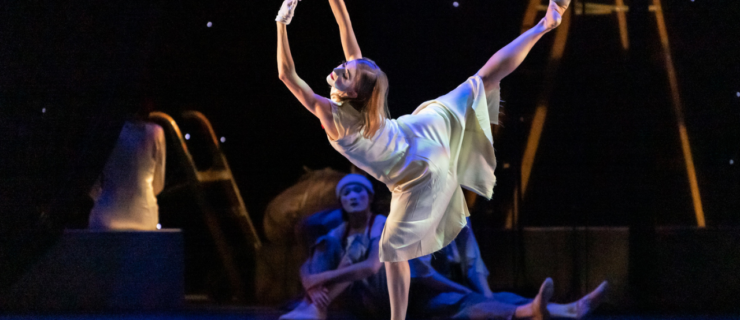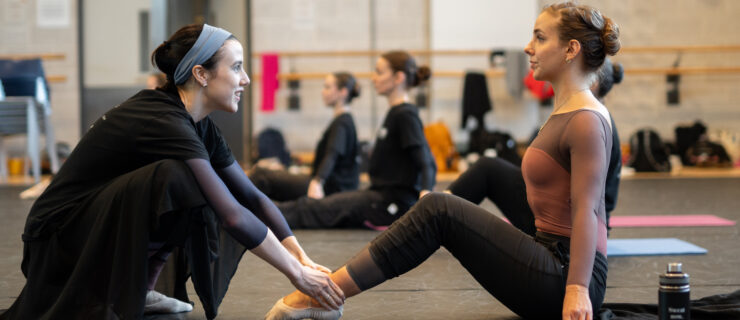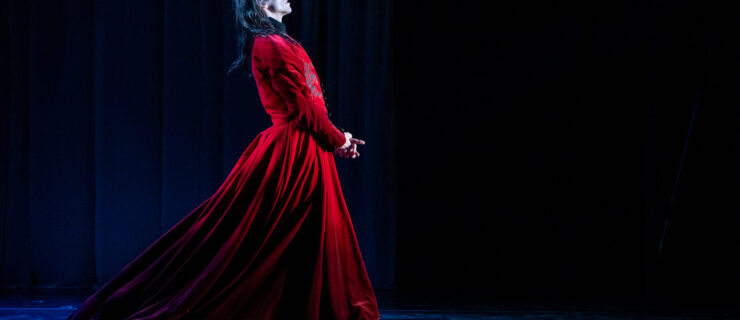Two DTH Dancers Come Full-Circle Through Mentorship
The life of an aspiring ballet dancer can be confusing and isolating. Hours spent training often leave little time for socializing, and while bonds may form with special teachers or coaches, the path toward a professional career isn’t always clear. This challenge is what makes mentorship in ballet so uniquely valuable; in a career with no set route to follow, personalized advice based on a role model’s experience can help steer younger dancers in the right direction.
When Dance Theatre of Harlem artist Lindsey Donnell was a freshman in the dance program at Butler University, she formed an unlikely bond with Alexandra Jones, then a 7-year-old student at the affiliated Jordan Academy of Dances. “One of my professors had just adopted a daughter,” remembers Donnell. “She wanted to explore the love between parent and child in a pas de deux, as opposed to the romantic love which is so often portrayed.”
To get started, the professor brought in a group of students from the Jordan Academy to meet the university dancers through a series of improvisation games. “[Lindsey and I] bonded immediately,” says Jones, now 25. “I remember telling my mom after the audition, ‘I got partnered with a brown ballerina and she looks like you!’ It felt really special.” Their performance together as “mother and daughter” marked Jones’ first time on a real stage.
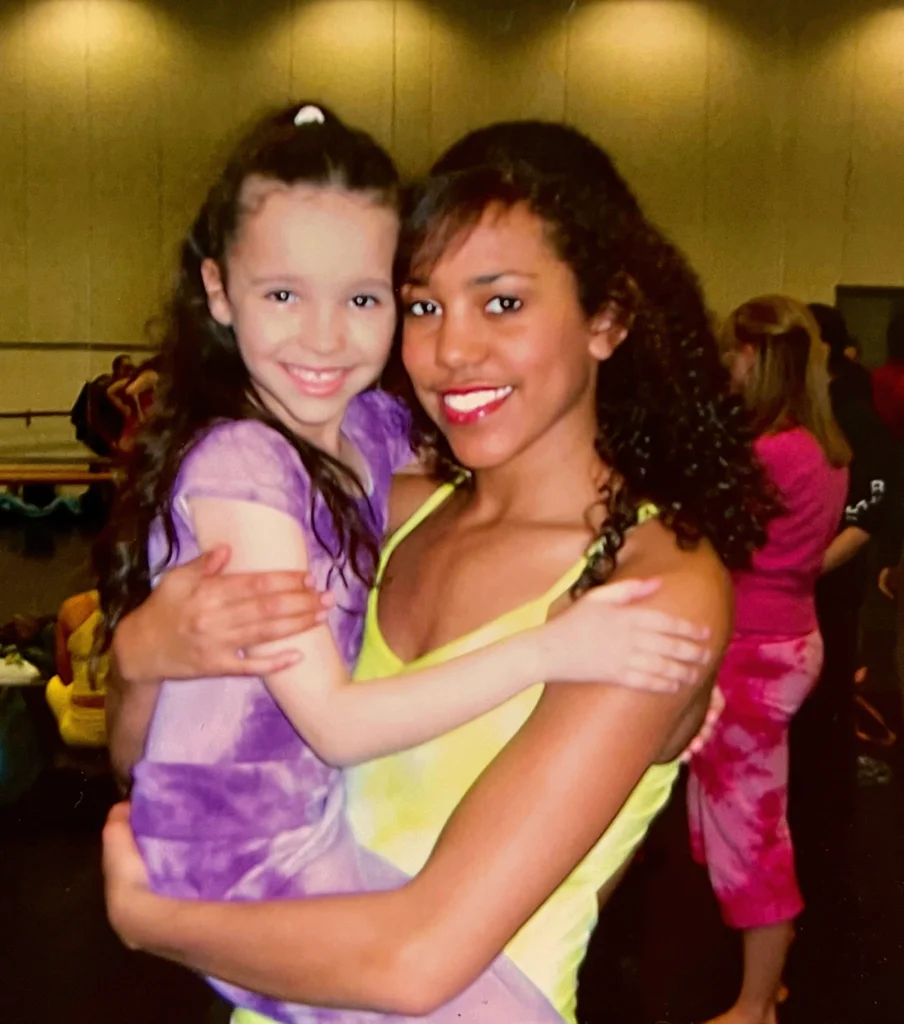
A few years later, as she became more serious about her ballet training, Jones set out to try and find the dancer she had bonded with from Butler. Thanks to the power of social media, the two were able to connect and reignite their relationship, which soon blossomed into a mutually beneficial mentorship. They began meeting up in person anytime Jones was in New York City for an audition or summer intensive, with Jones’ mother as their welcomed third wheel/chaperone. Donnell talked Jones through her first experiences with summer programs, helping her gain all that she could from those important but physically and emotionally demanding opportunities.
A Crucial Question
The mentorship really took shape when Jones was in high school; the teenager was studying at American Ballet Theatre’s summer intensive and found herself struggling with which path to take next: college or company auditions?
Donnell offered some invaluable advice that Jones says has guided her throughout her career: “Lindsey told me that there are many different paths you can take, like a map or a GPS, and still get to the same destination. There are many ways to achieve one goal, and in the end it doesn’t matter which route you take to get there.”
Donnell’s own path to DTH was anything but ordinary. After graduating from Butler, she danced with Nashville Ballet’s second company for two years before moving to New York City. At that time, DTH was on hiatus due to financial difficulties, so Donnell boldly relocated in hopes that, when the company returned, she could dance there. She took a risk that paid off, based on her gut instinct about her own path toward her goals: The company started back up again the following year and offered her a spot. “I’ve been with DTH ever since.”
When Jones decided to attend Indiana University, her catch-ups with Donnell became even more frequent. “I was always updating her on my game plan, calling to ask for audition advice,” says Jones. “We were sisters at this point!” During her senior year at IU, Jones auditioned for DTH (her dream company) for the first time but was not given a contract. Of course, her mentor had helpful advice. “I reminded Alex to be herself. Know what you bring to the table, don’t be shy,” says Donnell, who supported Jones from afar, streaming IU’s final workshop performance during DTH’s residency at Chautauqua Institution in 2021.
Coming Full Circle
All of Donnell’s guidance came to fruition this year when Jones auditioned for DTH a third time and was offered a contract. Now that they are dancing as colleagues, their relationship has come full circle.
“When I look at her now, I can still see the vibrant, smiling magic in her eyes. She’s still the same person, but we’re sisters and friends now. And now she inspires me!” says Donnell. Jones is still learning from her mentor, and is even being put into Donnell’s roles as her second cast.
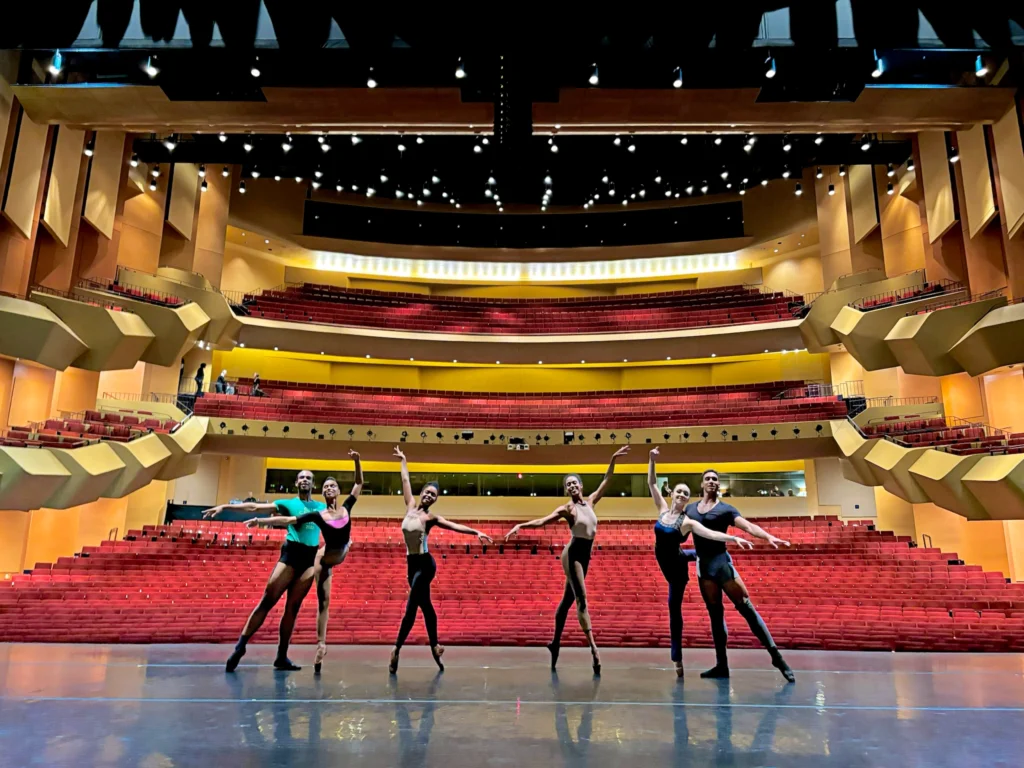
“A dance career can be emotional, but those things aren’t often addressed because we are working so hard on technique. But what’s happening internally is projected out through your dancing,” says Donnell. This is especially evident on the professional level, where artistic staff are juggling so many things to get the production together. They don’t always have time to check in on what’s going on with every dancer emotionally, so a dancer-on-dancer mentorship can be beneficial in these instances.
If you’re wondering how to form your own mentorship, Donnell has advice for that, too: “Just ask! Offer to buy a dancer you admire coffee and let them know what you like about their dancing. Let it grow from there. Most dancers will be honored to share their story.” Jones and Donnell are a testament to the beauty of these types of mentorships. “It’s really full circle,” says Jones, as Donnell interjects: “A love circle!”
